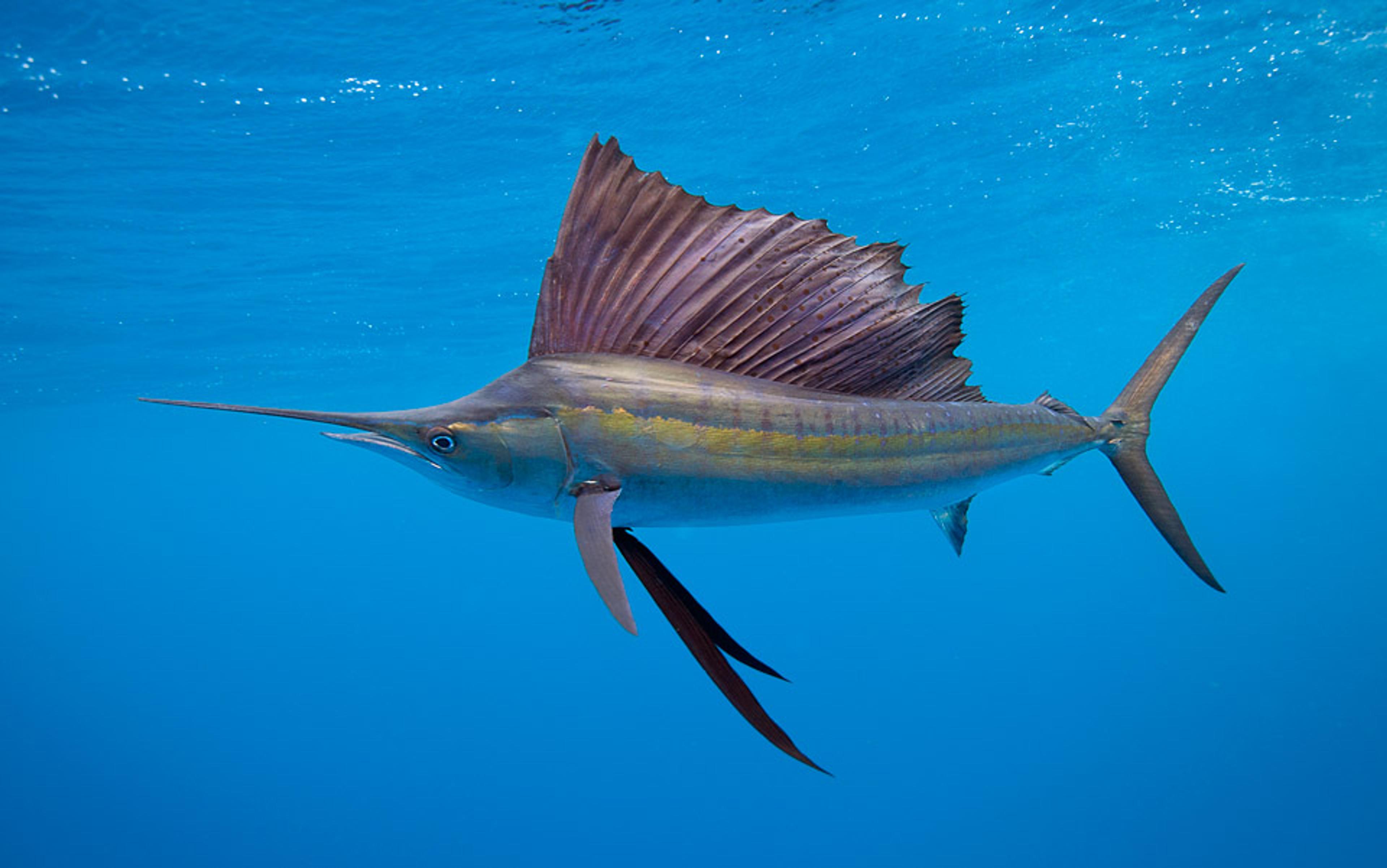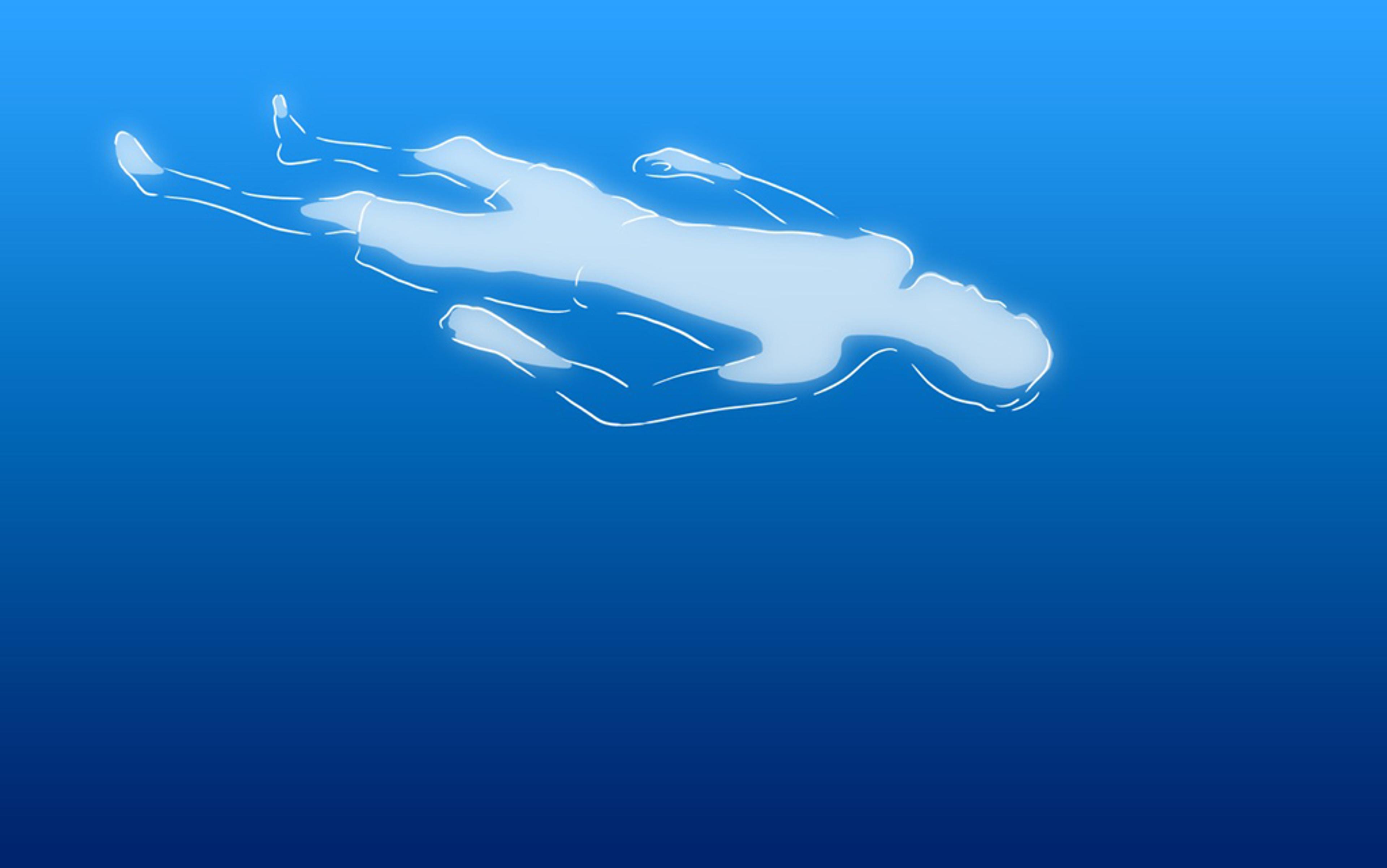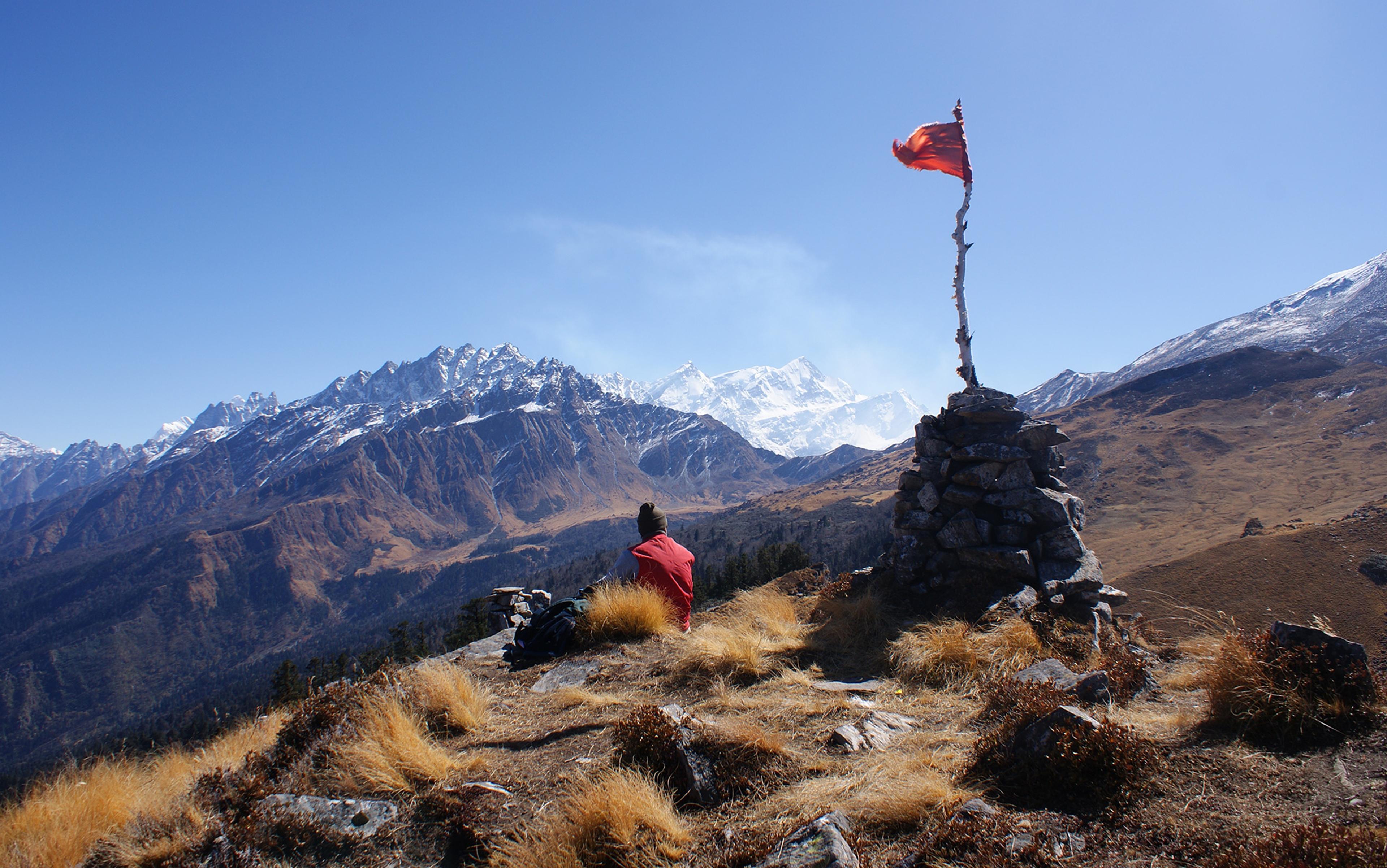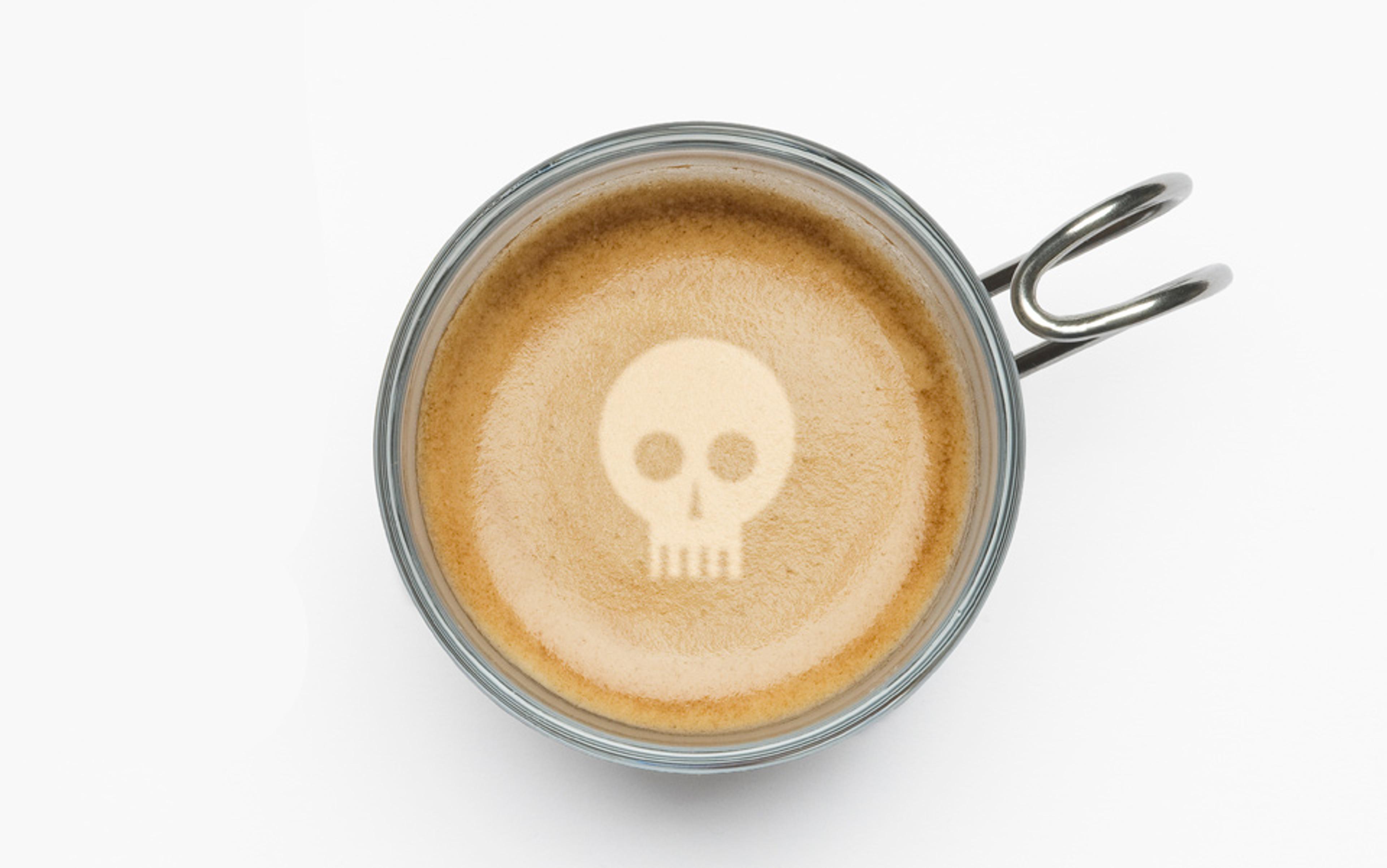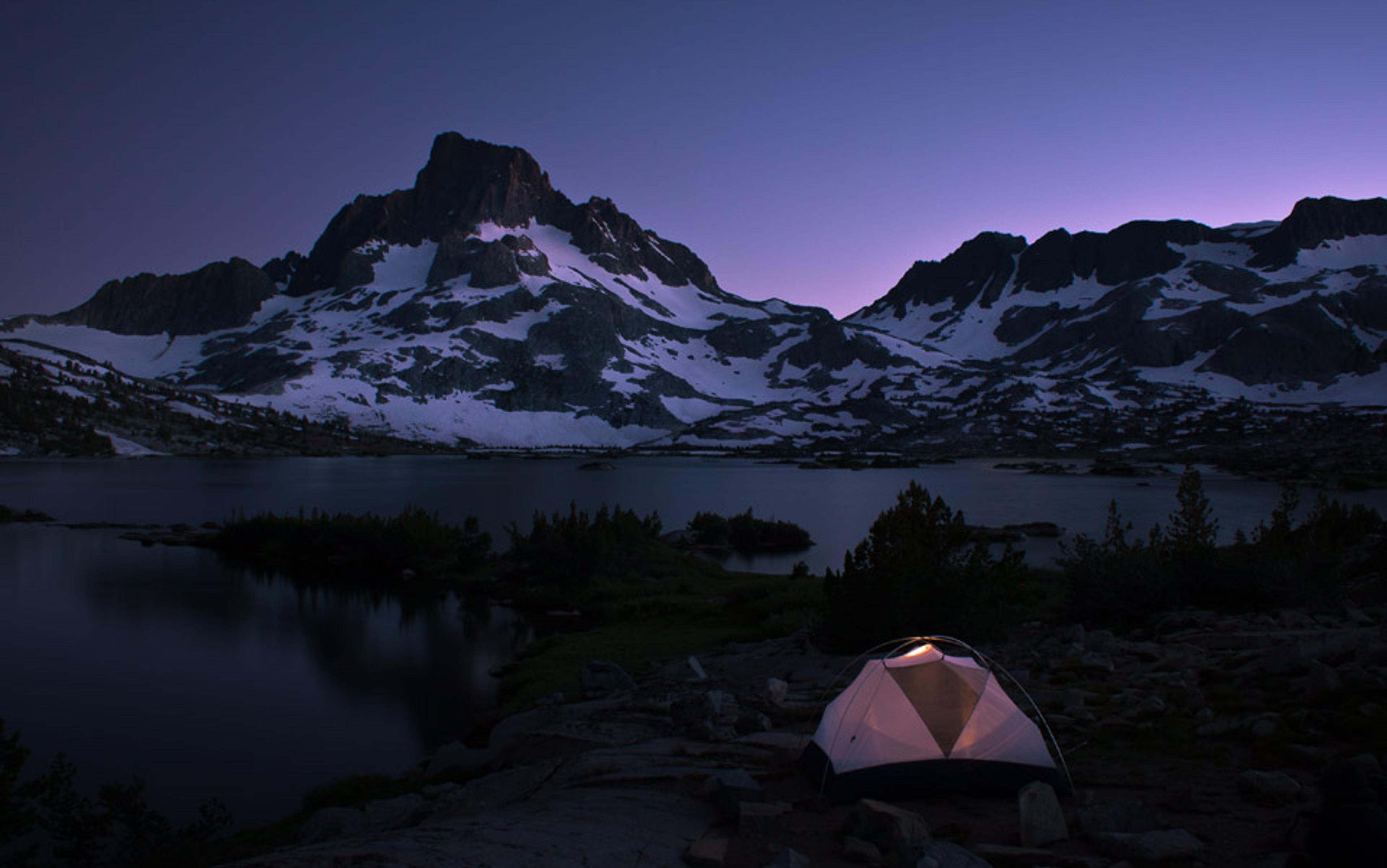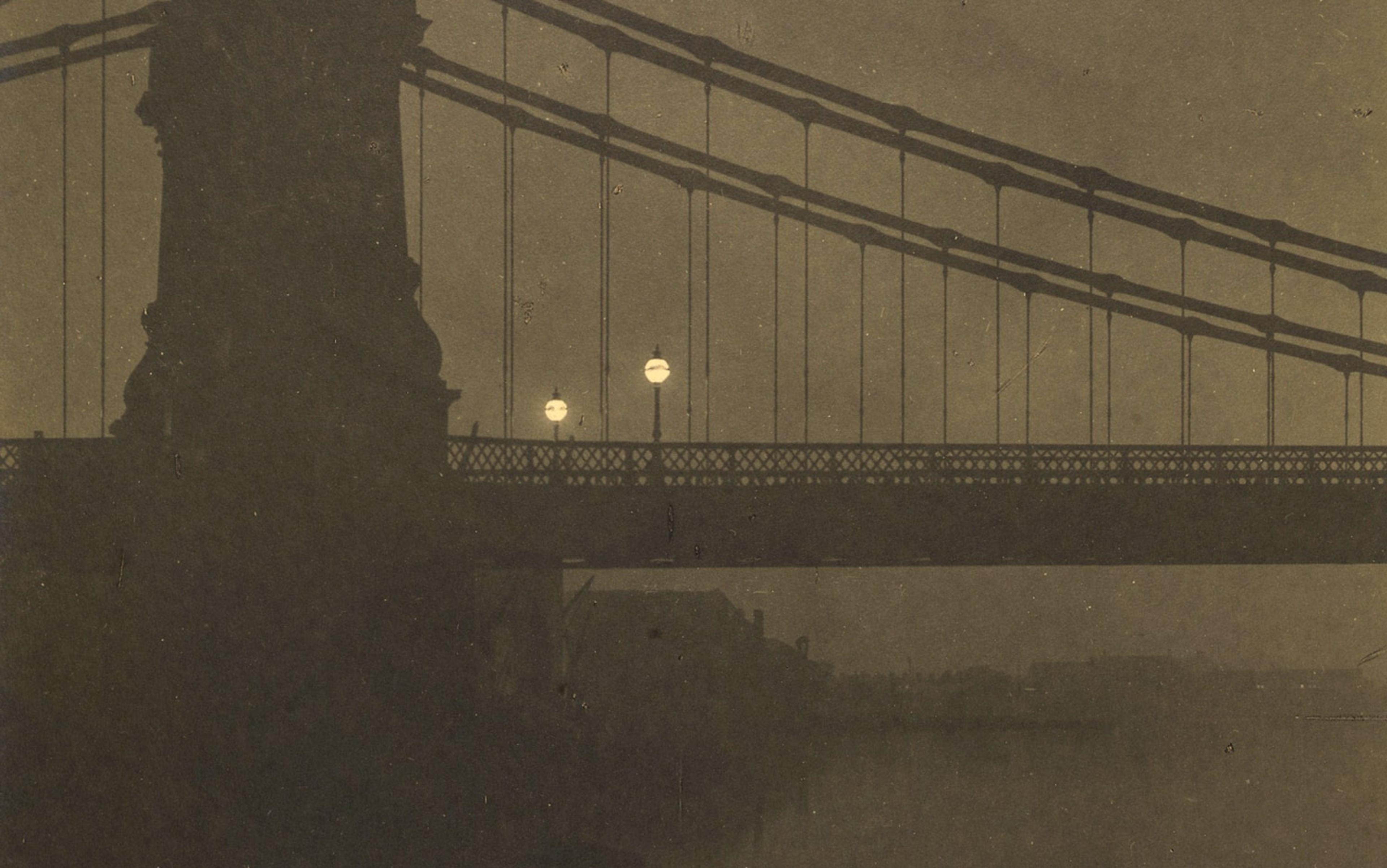When my relationship of 17 years ended in divorce, I felt alone in the world in a way so yawning I couldn’t sit still, it was like living beneath a cold and blinding sun. I drank. I said cruel things to myself. I craved but hated all the sympathy.
Finally, newly ensconced on the coast of Portugal, I picked up a surfboard. The water was cold. My early attempts were so pathetic I laughed out loud, imagining how I must have looked from the sand. But I went back, and kept going back, and now I will never stop.
Learning to catch waves has helped me rebuild myself, and find a vein of dedication and strength that I deeply needed to find. I’m not the only one. Surfing is marketed with saccharine cliché: bronzed Californians gliding across a sepia sunset with the Beach Boys in the background and a VW camper in the foreground. In reality, surfing has long been a haven for the lost, the hurt, the seeking.
In his book Mindfulness and Surfing (2016), the former European longboard champion Sam Bleakley writes that he has ‘seen suffering men and women reborn and healed through surfing.’ Surfers, he says, ‘often talk as if they have found a secret in life.’
What’s the secret?
The first time I ever caught an unbroken wave was one of the greatest moments of my life. The memory is crystalline, perfect: the glistening aquamarine curl extending away from me, the massive sky above; my orange foam board under the soles of my feet, and a feeling of sliding, slicing downward – feet like knives in those precious impossible seconds before the wave begins to break. The dismount was not elegant. Astonished at what I had just seen, where I had just been, I yelped and slapped the water. A couple of dog-walkers eyed me from the shore. Many hours of spluttering, messy effort to suddenly be so effortlessly, elegantly in tune with the shape of a wave. All the surfing I do from here on out will partly be in pursuit of this original sensation.
My ex-wife was a brilliant woman, decisive in a way I’m often not. I’d seen her ruthlessly cut old friends out of her life, old habits, old patterns. I never expected to be on the receiving end but, all of a sudden, on a winter evening in a cocktail bar in downtown Lisbon, there I was. What I thought was a crisis meeting was in fact a farewell. She never came home again. Nostalgia didn’t interest her; nor did sharing the hurt. I wrote her a letter; she didn’t read it. I know that she believed this to be the best way; for her, and also for me. Cauterise the wound. Tough love until the end. But it was horrible.
Going to the water, chasing the water, in the exhausted body hum after the water: blessed quiet
Surfing is a lot of bobbing on your board and staring out to sea, trying to read the undulations. In these moments there is calm and quiet, just wobbling patches of sun, sea birds taking their time with who knows what. Then, a hump will start to appear, and start to climb, and you’re in the right place for it, or close – and all of you comes to life. Hunger and nerves. Turn, paddle, look over your shoulder, your other shoulder. Paddle more, maybe less, maybe suddenly paddle like your life depends on it, like this is the last wave God will ever grant you. Get your chin down, get the nose of your board into the slope, feel the wave pick you up from behind, small sensation of levitating. Then get your hands under you and sphinx your way up to your feet. Don’t rush it, but don’t dally. Hesitate and you’ll flub it. Fractions of seconds and fractional movements determine whether it will be the wave of the day or you’ll wipe out. Everything vanishes but the chase, the only thing you want in life is a clean pop-up and the speed to set off down the green water. Shake the salt out of your face, tack the wax with your toes. Get lower. Turn. Eyes where you want to go.
This is what surfing gave me at first: presence. A way to not wallow in my thoughts. A healthier way than drink, or hookups, or doomscrolling. All the thoughts my ex had left me to drown in, when she’d vanished – did she regret it? Would she miss me, even for a passing second? – all these acid ponderings would melt. Going to the water, chasing the water, in the exhausted body hum after the water: blessed quiet.
I asked Andrew Cotton, one of the world’s best big wave surfers, about what surfing does for him. Though Andrew rides waves 20 times the size of the waves I do, his answer matched my own: ‘It’s always been my escape,’ he said. ‘It forces me to be completely present. It clears the head and brings a kind of calm that’s hard to find anywhere else.’ At the heart of surfing, whether you’re a kook like me or a famous charger like Andrew, is this: the pursuit of moments so pure they clean you out.
The sciences have done their best to probe. Surfing is by nature somewhat immune to study. It’s hard to put someone in an fMRI machine while they’re riding a wave. It’s hard to create good control groups; it’s hard to isolate surfing from other positive effects (exercise is good for you, as is being in cold water and sunshine). Nonetheless, ‘surf therapy’ has been on the rise since the 1980s, and there’s been a steady uptick in research into surfing’s benefits.
A 2020 systematic review of 29 studies found that, across a variety of populations, surf therapy fosters resilience, emotional regulation and social connection. Many studies focus on particular sub-groups. For British combat veterans with PTSD, surfing was found to provide ‘a fully embodied feeling of release from suffering’, reducing symptoms of anxiety and depression. Similar benefits have been seen among Australian military veterans, where 10 sessions of surfing led to significant reductions in PTSD symptoms, with improvements maintained seven months post-programme, even if the surfing stopped.
Surfing likely produces an addictive mix of endorphins, dopamine and adrenaline
Studies show that surfing confers increased self-esteem and emotional stability in youth, including for young adult cancer survivors. One study found that surfing boosted ‘mindful embodiment, which supports repair from the mind-body split that can happen as a consequence of trauma [and] addiction’. In a survey of Australian surfers, 99 per cent of respondents reported improvements in mental health. The 2024 UK Surfing and Health survey found that frequent surfers reported higher physical health and mental wellbeing, with significant increases in positive engagement, revitalisation and tranquility. A Hawaiian study found that participation in an ocean surfing course significantly increased spirituality among participants.
What’s behind all this? It’s hard to say for sure. But Wallace J Nichols, author of the influential book Blue Mind (2014), posits that surfing likely produces an addictive mix of endorphins, dopamine and adrenaline that is tailor-made for ‘peak emotional experience’. Speaking to the journalist Steven Kotler, the neuroscientist Andrew B Newberg said that ‘the intense focus surfing requires is so similar to the intense focus of deep meditation or ecstatic prayer or ritual dance or any number of so-called spiritual experiences that it’s a pretty good bet that very similar things are going on in the brain.’
‘I was a sunburnt pagan now. I felt privy to mysteries,’ wrote William Finnegan in Barbarian Days (2015), his memoir of discovering and dedicating his life to surfing. While the methodologies vary and there is much research still to do, it’s clear: surfing is good for you. Whatever the mysteries that surfers become privy to – they’re real.
You always paddle out alone. Sometimes you’ll be with friends, or people you know from the lineup. But when the moment of action comes, or when a scary set looms up – you’re on your own. On cold days, rough days, out there earlier than the rest of the world, you can feel like the only person on earth. When you’re learning, surfing can be grim, confusing, humiliating. You’ve got to want it. It’s warmer in the car. To progress, you have to find courage: you’ll never progress if you don’t paddle into things that frighten you, and early on you have to discover that wiping out is scarier in your mind than in reality.
Divorce had left me down on myself, drained by the horror that the person who had known me best had found me so easy to leave. Paddling out solo, refusing to be put off when I got monstered by a heavy wave, sore as hell in my nearly 40-year-old body – it made me confident, proud of my determination. Surfing was hard and I refused to quit. Even after a bad session, I felt stronger and braver. It was better than all the talking, all the acid nostalgia. What no-one tells you about life tragedies is that after about six months people just stop asking, and suddenly you miss the sympathy. We had said that one day we would be old and grey together; now, she was asking me to stop WhatsApping her. It wasn’t meant to be like this. My loop-the-loop brain remained certain there was so much thinking to do, even though all the thinking had already flayed me, robbed me of weeks of sleep. The water was cold and unending and without opinions. It helped.
Boards would be carved from local trees, with prayers offered and rituals performed before taking to the water
Matt Warshaw is a former professional surfer, and the pre-eminent historian of surfing culture. I asked Matt about his own history with surfing, and how it gets its hooks into you. ‘Surfing pretty much ate me up, ate my time and attention for 35 years,’ he said. ‘It took some doing to not lose myself for good in it.’ I asked him if my impression from working through the surfing literature was correct: that there seemed to be a long and deep history of surfers going to the water to heal. A tactful man, he didn’t pry about my own recent past. But he confirmed: ‘The beach and the ocean have always been fantastic places to retreat, to escape, to find calm,’ he told me. ‘Surfing as a healing, curative practice; yes, absolutely.’
Reverence and rebirth. They suffuse the history of surfing. I am but a late arrival in a long, long line. In 1779, a baffled Lieutenant James King watched the Indigenous people of Hawai‘i enter ‘the Swell of the Surf, & lay themselves flat upon an oval piece of plan about their size and breadth … wait the time of the greatest swell that Sets on Shore, & altogether push forward with their Arms to keep on its top …’ He didn’t know what he was seeing, but now we do: people hooked on the feeling of catching waves. To these people, surfing (heʻe nalu) was bound up with divine reverence. Boards would be carved from local trees, with prayers offered and rituals performed before they were taken out to the water. To this day, Hawaii remains surfing’s spiritual home – the place where people were hooked long before boards got lighter, cars became commonplace, the wetsuit arrived, and surfing went global.

From Captain Cook’s Voyages Round the World (1897). Courtesy the British Library/Flickr
In the ancient oral tale of Hi‘iakaikapoliopele, the goddess of medicine uses surfing to help resurrect a chieftain. Fast-forward to my own godless era, and we find one of my favourite films: Point Break (1991). In this epic, hammy tribute to surfing, the antihero, played by a brooding Patrick Swayze, exits this life on a wave he’s been hunting for decades. It’s silly – but it’s also dreadful and beautiful. Deep down, in a whisper, every surfer thinks What a way to go out. Life and death among the waves. It’s hard to imagine a similar plot climax for a passionate golfer, or darts player.
Summer has arrived, and here in Portugal that means the beaches are packed. I am getting out as early as I can, setting alarms for 6 am on a Saturday (the 19-year-old me would be stunned). It’s beautiful to be out there early, with just a few others. Share some hellos, some nods. The sun burns off the clouds and lands diamond-bright on the water. Between sets, I like to drop my wetsuit-slick body into the water, rest my chin on the deck of the board, half-close my eyes, and listen to the lap of the ocean rumble and echo through the bottom of the board. Nothing to do. No phone. Try and be patient, no paddling chasing vanished peaks. Keep the horizon in view. Wait. In Psyche, the philosopher Aaron James writes eloquently on how surfing ‘amounts to a kind of faith – faith that the world will work in your favour, if you just do your part, and keep doing the next right thing.’ Like pilgrims on a long march, surfing is 90 per cent expectation. Then suddenly on the horizon there’s a shape rising, and I’m in its path, and it’s time to move.
I made mistakes in my marriage. I didn’t think they were fatal, but that was probably the real mistake, the meta-mistake. You make mistakes surfing, too. I recently dropped in too late and too steep on a wave that was already closing out. It broke hard into my right side, and I lacked the time or wherewithal to jump down into or up over the exploding white water. Instead, in the same instant, I was crunched and ragdolled toward the shore, and the wave picked up and launched my 9’6” log of a longboard. I got my arms up in an instinctive nuclear bomb crouch, and caught it on my triceps, where as I write I have two bruises, so broad and grey-green that they’re hard not to admire. If I’d been a bit later it would have been my nose, or my teeth. I’ve seen surfers much braver than me, riding bigger seas than me, with slipped discs, shattered feet, broken jaws. Even on a glassy sunny day, the sea can always remind you: it doesn’t care. It can hurt you.
A little while later, having shaken the adrenaline out of my bones, I caught a beautiful one. Small but clean and green, and I got into it early, watched a whole line of others glumly pull out as they saw me coming down the line on my log. I trimmed up and down a bit, experimented a little with walking daintily toward the nose, salt water shaving and leaping off the rails like tiny melting diamonds. I rode the wave to the end, carved back out to face the horizon. A guy with peroxide blond hair paddling out gave a little whoop, a little shaka sign. He didn’t know it, but it made my session. When surfing isn’t lonely, it can be wonderfully friendly. I’ve never spoken to as many strangers as I have in the past two years, out on the ocean.
Surf culture has its roots in the punk movements, and surfers were always seen as outsiders and agitators
Somewhere along the way – partly the surfing, partly time being the healer they say it is – I’ve come to a shocking new clarity: my ex was right. We were finished. We had lost one another. I hadn’t been happy either; in fact, I had been passive, hollow, faking it. But I would never have had the strength to leave my best friend. After all that, I owed her a strange sort of thanks. She was always braver than me. Clarity is part of surfing too. There are no lies. You catch a wave or you don’t.
Am I idealising surfing? Probably. Most kooks do. Any seasoned surfer reading this may well be rolling their eyes. Surf culture has its roots in the punk movements, and surfers were always seen as outsiders and agitators. To this day, the surf scene is hardly one populated entirely by enlightened Zen masters. YouTube is replete with punch-ups. Localism reigns. There is a lot of gatekeeping. Surf communities tend to be wry, dry, dismissive of the happy-clappy gentrifiers of surfing.
Even if surfers aren’t very Zen most of the time, the same goes for most adherents to anything. We humans tend to overlay any pursuit with the usual selfishness, impatience, and mess of flaws. The surf bros yelling in parking lots, guarding their turf like it’s sacred? They’re part of it too. But, behind the bluster, everyone with a board is chasing the same thing: a channel to something purer, where the human experience meets ocean and for a moment the noise drops away.
‘When suicide seemed a damn viable option,’ writes Steven Kotler, in West of Jesus (2006), ‘surfing saved my life.’ I was never suicidal – but I wasn’t good. Two years later, I’m well. Bruised, maybe forever. But here to stay.
Heartbroken and newly alone in the world, could another activity – padel, archery, woodworking – have helped me come back to myself? I suspect not, at least not in the same way. I’ve come to believe that it was the ocean that helped me: the ocean, and the waves it makes as it sends its ripples to dry land; and the things you can do, or try to do, during a wave’s final seconds of blue-green.
The ocean doesn’t care. It will offer you what it has, and nothing else
The woman I lost adored the ocean, especially the freezing, pounding Atlantic. Sometimes when I’m floating back out, the thought will cross my mind: she would have loved this. She would have loved learning this, together.
But our wave broke. It was a long, glassy, beautiful peeling right – but it broke. All waves do, in the end.
Now I’m on a new wave, with a woman who loves me in new and brilliant ways, who I care for in new and careful ways. She is fearless on a foamie. Our wave too has power, it builds and climbs from the darker blue into the sunlit flats. I will ride it for as long as I can.
Some of my purest, most blissful memories are holidays to Cornwall as a child. Back then I already adored the sea, adored letting it toss me, slap me, pound me with salt and froth. One morning, my mother and I went bodyboarding at dawn; I think it’s the purest happiness I have ever felt, or ever will feel. The sea is like this: it’s there, it was always there, it will always be there. It was there before you came, it will be there when you’re gone. Its lessons are old, and they’re available for everyone: young or old, rich or poor. The endless, moaning sound of the sea – mordros, in Cornish – was here before us, and will be here after us.
Whatever pain is sloshing around your skull – divorce, grief, ageing, bankruptcy, melancholia – you are guaranteed to forget it, to be bigger and purer than it, at least for a moment, when you come down the face of a green wave. The ocean doesn’t care. It will offer you what it has, and nothing else. Give it the best of yourself, and it will give back, one way or another.
Shaun Tomson, former world surfing champion, has shared a 12-fold ‘surfer’s code’, part of which is a mantra for the ocean and for life: I will always paddle back out.
I lost the love of my life. Paddling back out was wretched, a near-drowning. I made it past the breakers.
I will always paddle back out.

